Dental Professionals

During the month of March there are specific days set aside to show appreciation for dental professionals. The first week is dental assistant appreciation week and March 6th is dentist day. This is also a time to remind everyone about the importance of regular dental checkups. Everyone on the dental team has a unique role in supporting excellent oral health.
The different roles of dental professionals
- The dental assistant has many varied responsibilities from assisting the dentist during a variety of procedures, direct patient care, office management tasks and many more possibilities.
- The dental hygienist focuses on prevention. They will threat oral diseases to protect the teeth and gums with consideration of whole-body health.
- The dentist is your doctor of oral health. The dentist will evaluate, diagnosis, prevent, and treat diseases, disorders, and conditions of the oral cavity and associated structures and their impact on the human body.
There are several dental specialties. Specialties are recognized when a dentist has advanced knowledge and skills. Here are some examples of different specialties (American Dental Association, 2021).
- Dental Public Health is the science and art of preventing and controlling dental disease and promoting dental health through organized community efforts, serving the community, rather than the individual.
- Endodontics is the branch of dentistry which is concerned with blood and nerve supply within the roots of the teeth.
- Oral & Maxillofacial Professionals assess, diagnosis, and treat diseases that occur in the face, mouth, and neck. Oral and maxillofacial professionals include oral pathologists, oral radiologists, and oral surgeons.
- Orofacial Pain encompasses the diagnosis, management, and treatment of pain disorders of the jaw, mouth, face, head, and neck.
- Orthodontics includes the diagnosis, prevention, interception, and correction of misaligned teeth and/or bite, as well as neuromuscular and skeletal abnormalities of the developing or mature facial structures related to the mouth.
- Pediatric Dentistry provides both primary and comprehensive preventive and therapeutic oral health care for infants and children through adolescence, including those with special health care needs.
- Periodontics encompasses the prevention, diagnosis, and treatment of diseases of the supporting and surrounding tissues of the teeth or their substitutes and the maintenance of the health, function and esthetics of these structures and tissues.
- Prosthodontics includes the diagnosis, treatment planning, rehabilitation and maintenance of the oral function, comfort, appearance, and health of patients with missing or deficient teeth.
Frequently asked questions about visiting the dentist
- Why do I need regular dental visits? Going to your dentist regularly will help ensure a preventive approach to your health care. Dental health problems are seen early, and treatment is likely to be simpler and more affordable. Also, some diseases or medical conditions have symptoms that can appear in the mouth.
-
What are some examples of when I should see a dental professional?
- It’s time for your regular dental checkup
- Pain or swelling in your mouth, face, or neck
- Gums are puffy or bleeding
- Your mouth has spots or sores
- Trouble eating, chewing, or swallowing
- Dry mouth
- Jaw Pain
- You have medical conditions or are undergoing medical treatment
- Pregnant
- How often should I visit the dentist? Every person is different. Some people need to visit the dentist twice a year; others may need more visits.
- What can I expect during a dental checkup? A dental professional will review your recent medical history, examine your mouth, and decide whether you need x-rays. During the examination of your mouth your dental professional will check your jaw, gums, and teeth. An oral cancer screening is completed by holding your tongue with gauze and assessing the whole mouth. This examination will be used to create a treatment plan to ensure you have healthy gums and teeth.
- How can I maintain a healthy smile with the help of my dental professional? It is always best to be honest and formulate a plan to achieve optimal oral health. A treatment plan will be implemented, and proper home care will be discussed. Maintaining your oral health is an essential piece of your overall health.
Tips for maintaining your healthy smile at home
- Brush twice a day and clean between your teeth daily. You may need to incorporate additional tools to effectively clean areas that are hard to reach. Having a good daily oral care routine will help ensure effective plaque removal.
Here are a some TePe products to help get you started with you daily brushing and cleaning between your teeth!

TePe Supreme Toothbrush has multi-level bristles to enable more efficient cleaning further in between the teeth and along the gumline. bristles. The tapered brush head allows access to reach the back teeth. It has an easy-grip handle with a thumb pad and the neck can be angled without heating.

TePe Original Interdental Brushes are small brushes specially designed to clean between your teeth, where a regular toothbrush does not reach. TePe has nine different size brushes to fit all varieties of spaces between teeth.

TePe EasyPick is an on the go silicone coated dental pick to clean between the teeth. It cleans efficiently and feels comfortable on the gums.

TePe GOOD Mini Flosser is a preloaded floss holder with a unique bite plane to gently insert the floss between teeth. It is part of the TePe GOOD range, made from bio-based plastic and wood fibers.
Regular dental checkups in combination with your own home care are crucial in maintaining oral health. Start by using TePe products to get one step closer to a healthy mouth!
Read More:
https://www.ada.org/en/ncrdscb/dental-specialties/specialty-definitions


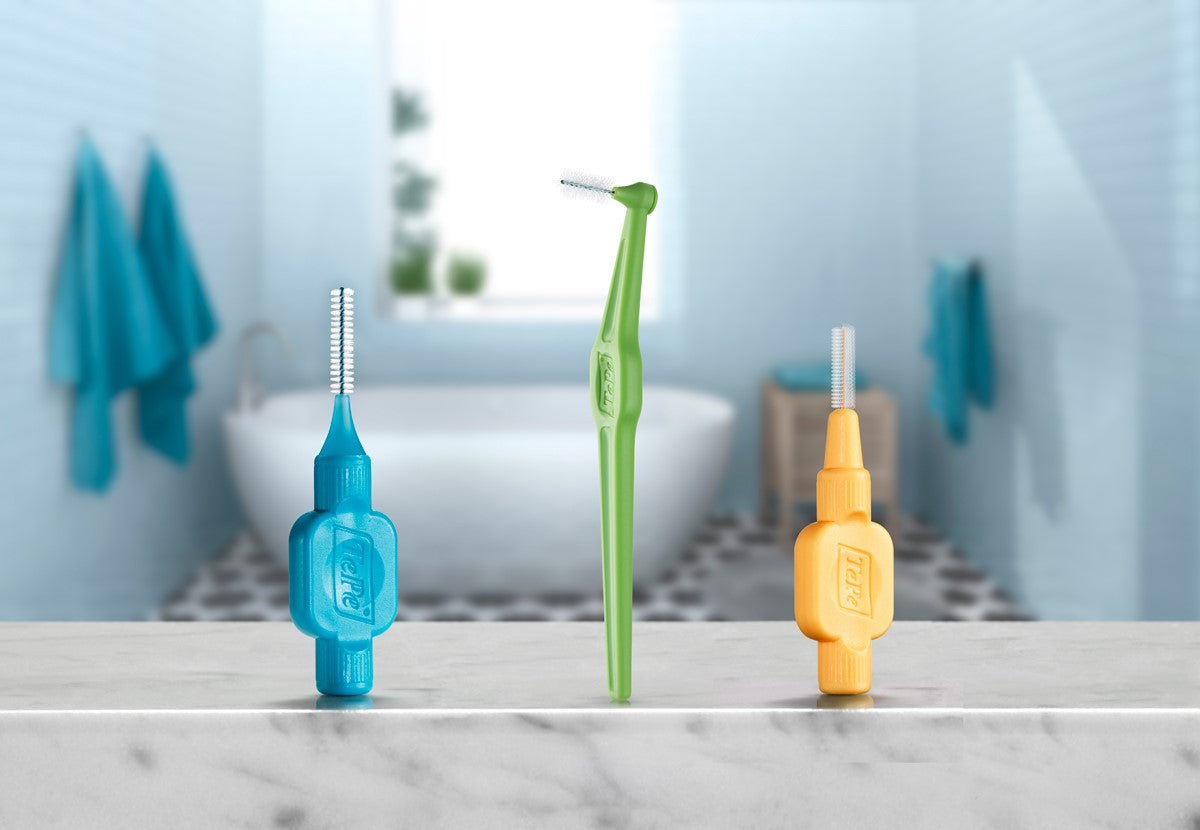
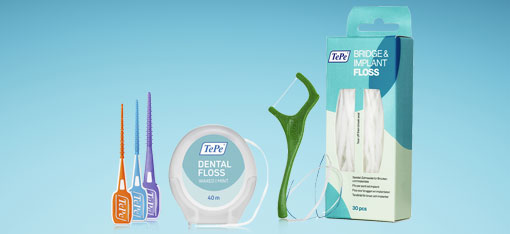
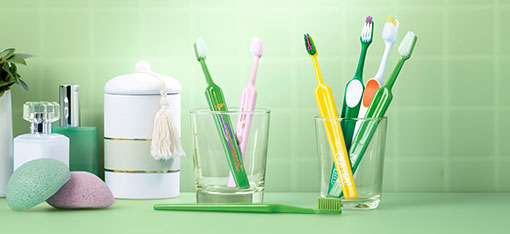
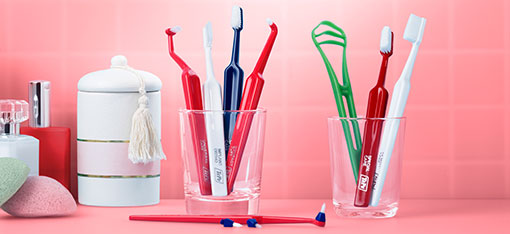
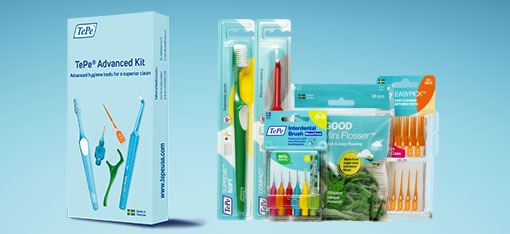




Leave a comment